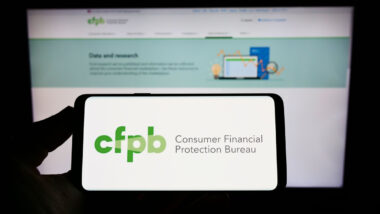 It is possible to sue a debt collection agency for harassment if they fail to abide by regulations outlined under federal regulations, specifically the Fair Debt Collection Practices Act (FDCPA) and the Telephone Consumers Protection Act (TCPA). Although certain exceptions are made for debt collection agencies under the TCPA, there are still rules that must be followed. If they are not, the debt collector can be held liable.
It is possible to sue a debt collection agency for harassment if they fail to abide by regulations outlined under federal regulations, specifically the Fair Debt Collection Practices Act (FDCPA) and the Telephone Consumers Protection Act (TCPA). Although certain exceptions are made for debt collection agencies under the TCPA, there are still rules that must be followed. If they are not, the debt collector can be held liable.
How Do These Laws Protect Me?
The Telephone Consumers Protection Act (TCPA), signed into law in 1991, is a body of regulation governing what telemarketers and other businesses can and cannot do when contacting consumers. In general, companies are not allowed to call, fax, email or text message consumers without their express permission. Consumers also have the option to place their names on the federal Do Not Call Registry.
Exceptions to the TCPA are made for charities and non-profit organizations soliciting donations, political parties calling on behalf of candidates, and debt collectors. These organizations do not need your permission to contact you; however, when it comes to debt collection agencies, special regulations apply. These are spelled out in greater detail under the FDCPA. For example, you may have grounds to sue a debt collection agency for harassment if they contact you:
- before 8 AM or after 9 PM
- if you have an attorney representing you in the case
- at your place of employment if you are not allowed to receive personal calls
Additionally, debt collectors are prohibited from engaging in harassment or abusive practices, including:
- threats of violence or other actions against you or someone else
- use of profanity
- publishing your name for non-payment (except in child support cases)
- list your debt for public sale
- attempting to conceal their identity as a debt collector
- make misleading or false statements (such as claiming to be a lawyer)
A Debt Collection Agency Threatened to Have Me Jailed! Can They Do That?
Thankfully, despite legislative attempts to revive such institutions, debtor’s prisons have faded into history, along with hoop skirts and muzzle-loaders; since the mid-19th Century, it has been against federal law to imprison someone for failure to pay consumer, or “civil” debts (i.e., credit cards, medical bills, etc.) There are still a very few circumstances under which someone may be put in jail for non-payment, including:
- violation of a court order (in most cases, willfully refusing to pay child support)
- refusal to pay income taxes
- failure to pay a citation (such as a speeding ticket) after a certain amount of time
Unfortunately, a growing number of debt collection agencies continue to use the threat of prosecution in order to coerce people to pay up on civil debts. In some states, the can file for what is known as a “debtor’s examination,” which is a court proceeding in which the debtor is required to appear before a judge and answer questions about his or her finances to the satisfaction of the creditor. Failure to appear can result in jail time.
When Else Can I Sue a Debt Collection Agency?
There are a number of “unfair practices” that a debt collector may engage in, which are all violations of the FDCPA:
- adding interest and/or fees that were not part of the original contract
- depositing a post-dated check before the date indicated
- threatening to seize your property when they have no authority
- send you a postcard or letter with information on the outside indicating an attempt to collect a debt
In addition to legal action against the debt collector, you can also report violations to the Federal Trade Commission and your state’s Attorney General’s Office.















8 thoughts onCan I Sue a Debt Collection Agency for Harassment?
Please add me
Please add me Portifolo collections calls me at least 3 times a day I have screenshots of the calls
Add me please
yes I have please add
Please add me
Please add me to this class action lawsuit
I unwanted get calls all the time but cant say anything to anyone cause it Robo calls .
I get robo calls from debt collection stating
That they are going to serve me with papers either at my house my job my family and friends and other old addresses that’s not right